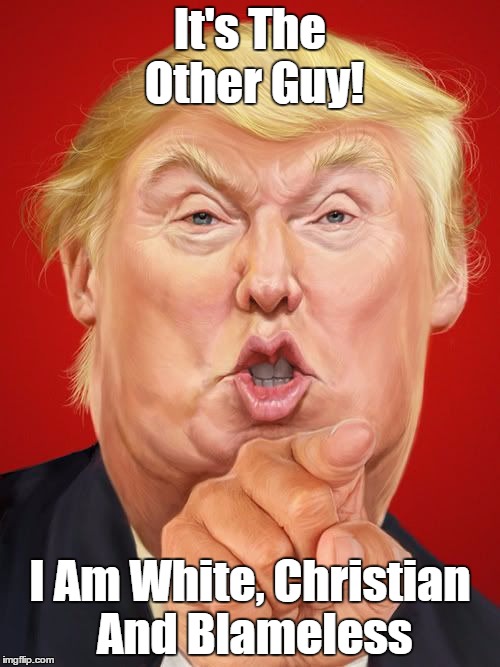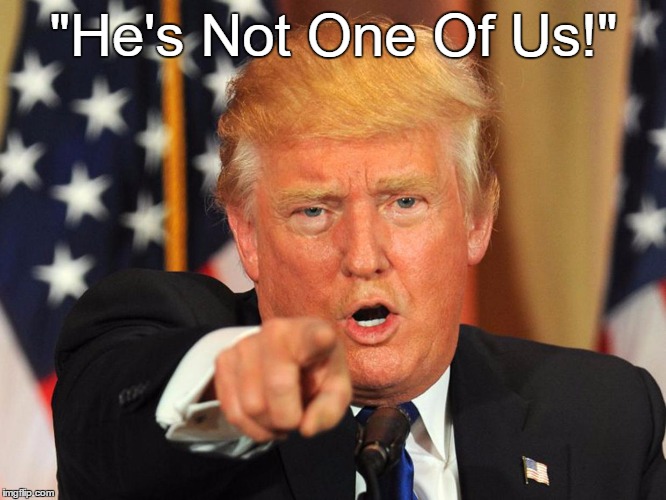Compendium Of Pax Posts About Trump "University" Scam
Compendium Of Pax Posts About Trump "University" Scam
A Biased Judge? Donald Trump Has Claimed It Before
By MICHAEL BARBARO and MEGAN TWOHEY
JUNE 6, 2016
The circumstances sound eerily familiar: Donald J. Trump and his legal team had suffered a setback in a major court case. So they leveled an attack on the presiding judge, calling him irredeemably biased and unfair.
“Your Honor,” wrote a lawyer for Mr. Trump, “harbors deep-seated antagonism that would make impartial adjudication impossible.”
The year was 2008, and Mr. Trump’s arguments closely resembled those he is now making against Judge Gonzalo P. Curiel, a federal judge in California overseeing a class action lawsuit against the defunct Trump University.
Today, Mr. Trump claims that Judge Curiel, who was born in Indiana, is incapable of objectively judging the case because of his Mexican heritage and record of being, in Mr. Trump’s words, “a hater of Donald Trump.”
Between 2008 and 2010, Mr. Trump’s lawyers went even further — turning angry accusations into an unusual, elbows-out legal campaign to remove not one but two New York judges who oversaw the lawsuit. One judge was an African-American man, the other a white woman.
Taken together, the episodes highlight Mr. Trump’s unusual approach to the American judiciary: Unlike most parties in court cases, who try to curry the favor of judges, he can turn publicly hostile toward them, assailing their motives, biography and fitness.
Over the past 48 hours, Mr. Trump expanded his musings about courts, doubting whether a Muslim judge could fairly adjudicate a trial involving him. That earned him a rebuke from Hillary Clinton, who wondered on Monday whether Mr. Trump would soon claim “that a woman judge couldn’t preside.”

Compendium Of Pax Posts About Donald Trump, Updated June 3, 2016
Throughout a career that has been marked by legal proceedings that either involved or fascinated him, Mr. Trump has not always seen judges as the ultimate arbiters of legal principle, but as adversaries who deserve mockery or bulldozing when they do not agree with him.
Even in cases where he is merely a spectator, Mr. Trump has plenty to say about those on the bench. The judge overseeing the 2014 trial in South Africa of Oscar Pistorius, the Olympic runner, for the murder of his girlfriend, was a “moron,” Mr. Trump wrote on Twitter. “Ridiculous decision,” he said of the five-year sentence.
Mr. Trump ridiculed a Pennsylvania judge appointed by President Jimmy Carter as “not his most brilliant appointment,” and wrote that the judge was “a willing accessory” to any crimes of convicts she had released from prison.
He does this despite his close ties to a federal judge, Maryanne Trump Barry, his sister.
The New York case stands out. Mr. Trump and his lawyers singled out Justice Richard B. Lowe III, who was first elected to the New York Supreme Court in 2003.
Throughout the case, which involved a Trump real estate development on the West Side of Manhattan and a partnership with Hong Kong businessmen, Justice Lowe issued orders Mr. Trump’s lawyers said were biased.
By the end of the case, Mr. Trump’s top lawyer, Jay Goldberg, apologized for seeking to oust Justice Lowe from the proceedings, promising to never level such accusations against him again.
But when the litigation was going on, Mr. Goldberg forcefully challenged Justice Lowe’s “fitness to serve in a judicial capacity,” accused him of “unwarranted bias toward Trump” and said that, “at every turn, Justice Lowe has shown that he is unable to comply with his duties,” according to a 2009 complaint Mr. Goldberg submitted to the New York State Commission on Judicial Conduct.
Mr. Goldberg, a longtime lawyer for Mr. Trump, claimed that Justice Lowe had betrayed a bias against Mr. Trump on two occasions. The first, he said, was when Justice Lowe declared, in his chambers and in the presence of a lawyer for Mr. Trump, that he would not allow Mr. Trump’s presence in the courtroom to intimidate him. The second, Mr. Goldberg said, was when Justice Lowe allegedly told Representative Charles B. Rangel of New York that he did not like Mr. Trump.
Justice Lowe on Monday declined to comment on the case. During a 2009 hearing in which he denied Mr. Goldberg’s request for his recusal, he acknowledged that he had used the word “intimidate” in reference to Mr. Trump, saying he was generalizing that nobody could scare him. He also defended his rulings in the case and said any allegation that he had been unfair to Mr. Trump was “mind-boggling.” He questioned whether it was “an effort to change the course of this litigation by trying to get before another judge.”
In an interview, Mr. Rangel said he had not spoken to Justice Lowe in the past 20 years and had no recollection of ever discussing Mr. Trump with the judge. Mr. Goldberg, the congressman said, “has a hell of an imagination.”
The New York State Commission on Judicial Conduct, which oversees state and local judges in New York, took no action against Justice Lowe, a spokesman for the commission said.
Steven Lubet, a Northwestern University law professor and legal ethics expert, said that filing a motion to remove a judge was “rarely sought and rarely granted,” not just in New York but across the country. The comments allegedly made by Justice Lowe, he said, would not be grounds for such a removal. “Those aren’t remotely close to what would disqualify a judge,” Mr. Lubet said.
Neither Mr. Goldberg nor a Trump spokeswoman responded to a request for comment.
As the real estate case wound its way through the legal system, morphing into a different suit with a different defendant, Mr. Trump’s lawyers sought the removal of a second state judge, Justice Eileen Bransten. Justice Bransten, they argued, had shown bias against Mr. Trump by calling his previous attempt to remove Justice Lowe “reprehensible.’’
They did not succeed.
Soon after, Mr. Goldberg, the Trump lawyer, withdrew his request that Justice Bransten recuse herself.
“I consider my conduct wholly improper,” he wrote, “and for that I apologize, particularly to Justice Lowe, with assurances that it will never be repeated again.”






No comments:
Post a Comment